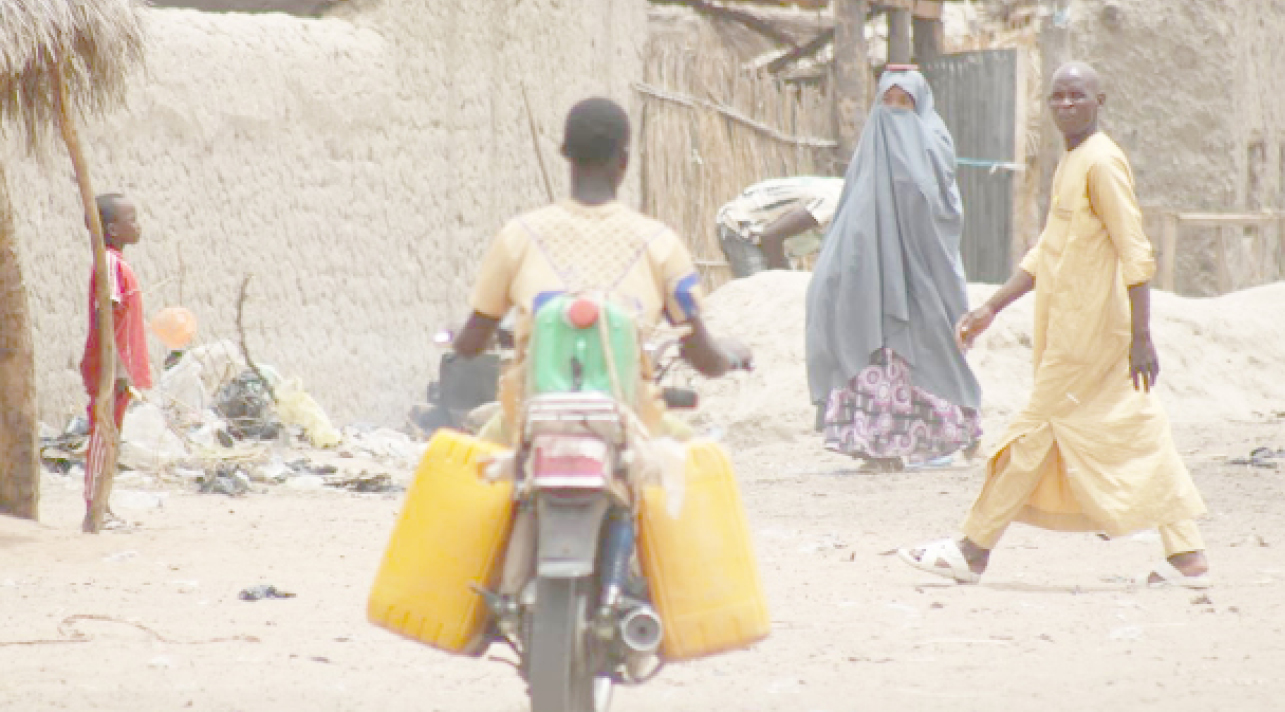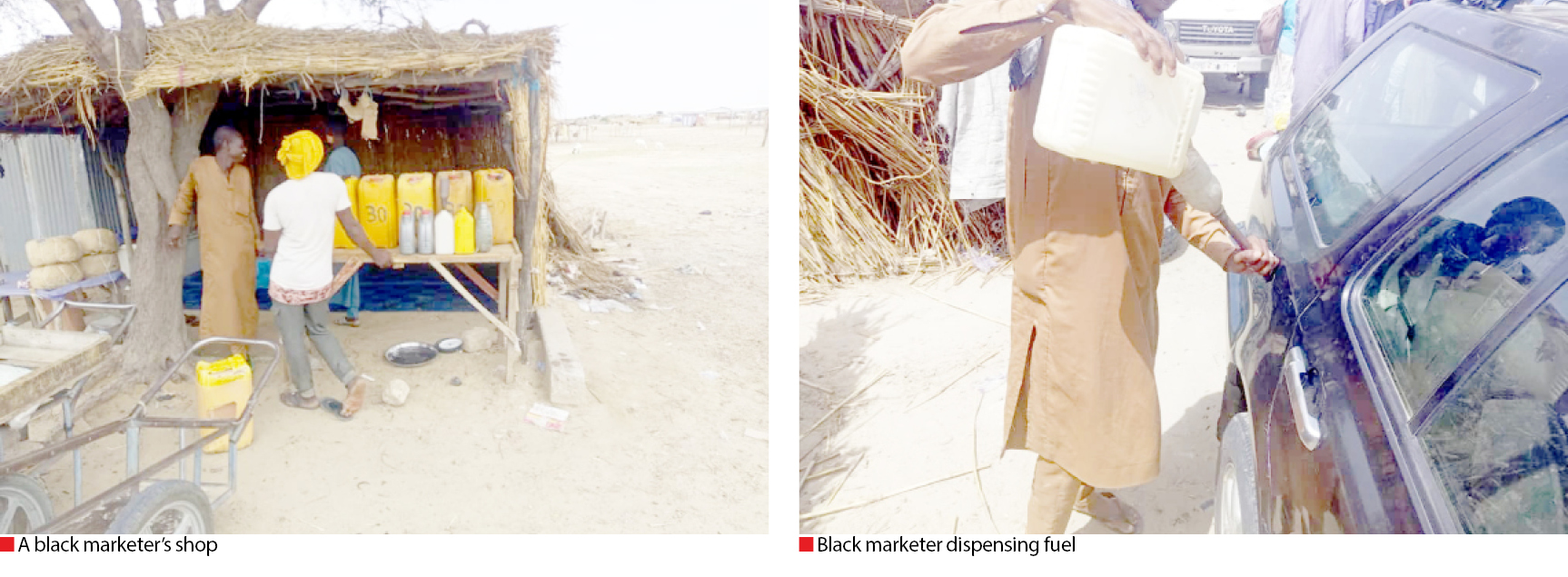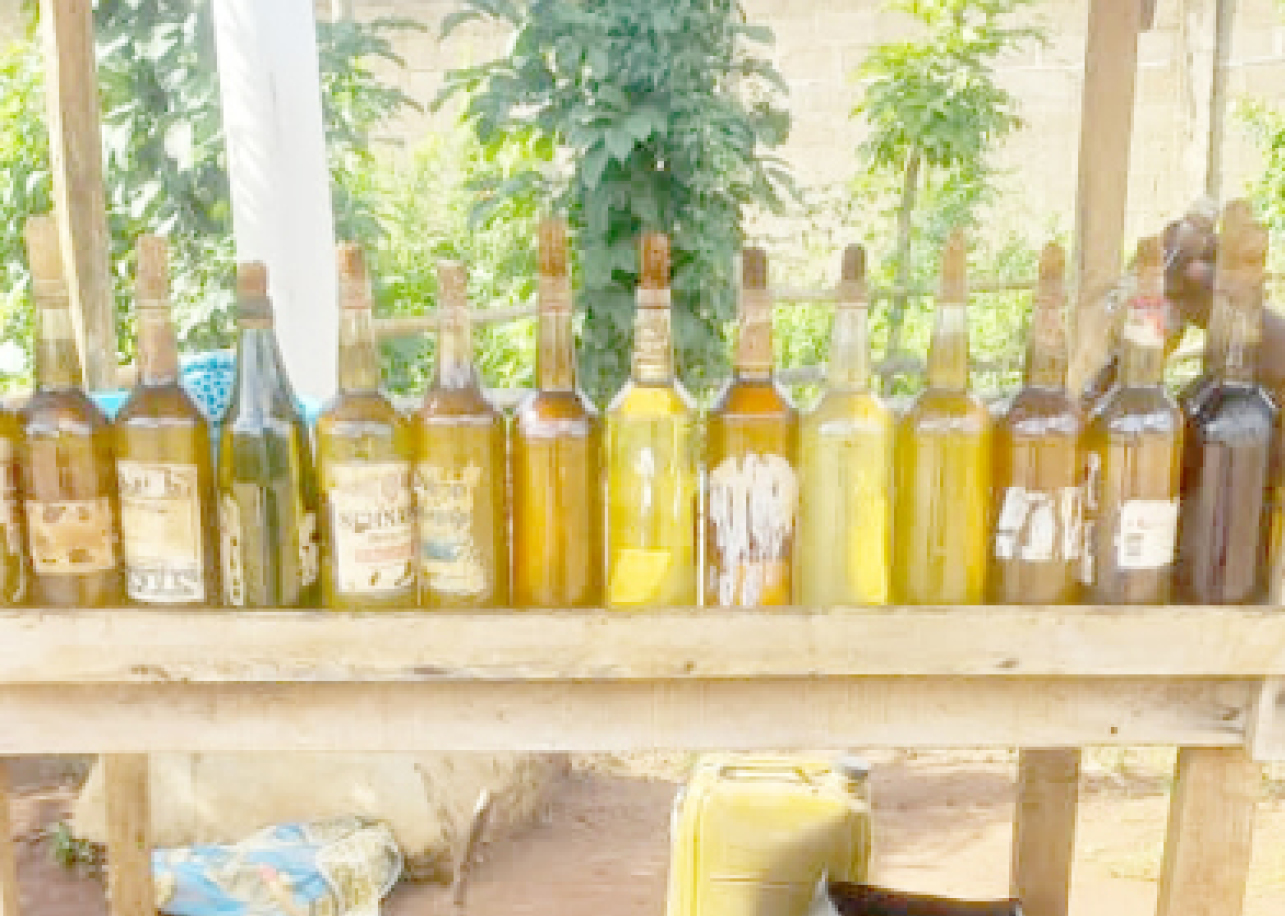Prices of petroleum products have nearly doubled in Cameroon, Benin Republic and Niger following the removal of fuel subsidy in Nigeria, findings by Daily Trust Saturday revealed.
Cheap petrol from Nigeria was regularly smuggled to as far as Sudan, a North African country, making it difficult for Nigerian authorities to save enough to provide services to the people.
The subsidy removal in Nigeria has also affected social and economic life in the neighbouring countries, with sources saying black market activities have significantly reduced.
The removal of fuel subsidy was announced on Monday, May 29, by President Bola Tinubu during his inaugural speech.
- Mixed reactions over proposed merger of FIRS, Customs, NIMASA
- Obaseki seeks support of new assembly members
Tinubu on Friday, June 9, justified the action, stating Nigeria cannot continue acting as ‘Father Christmas’ to neighbouring countries.
He said this at an interactive session with the Royal Fathers under the aegis of the National Council of Traditional Rulers of Nigeria (NCTRN) at the Aso Villa.
No longer at ease at neighbours’ doorsteps
Our reporters learnt that petroleum products are being sold at CFA700 or CFA 800 in Benin Republic, nearly double the previous price, CFA 450.
The development lends credence to reports that a significant volume of Nigeria’s subsidised petroleum products were being smuggled into other African countries.
The chief executive officer of the Nigerian National Petroleum Company (NNPC) Limited, Mele Kyari, in a media interview said, “We know how much we supply. There is data on this. Is all of this consumed in the country? The answer is no. The reason is very simple. We have an arbitrage environment. For instance, before this decision we made, fuel sold at N185 in Abuja, but just across your border, there is nowhere you would have prices that are lower than N500 per litre.
“None of the countries around us imports petroleum products, and you can’t do something about it because there is an arbitrage environment we have created. We have 4,500km of land borders and you don’t have all the resources to man them,” he said.

Questionable businesses grounded
Transporters, passengers and traders in neighbouring countries said they were grounded by the increase in the price of petroleum in Nigeria.
Speaking to Daily Trust Saturday, a top player in the Nigerien petroleum sector, Bio Abdourahamane, admitted that subsidy removal in Nigeria would have more negative effect on his country.
He said that before the subsidy removal, smuggled Nigerian fuel used to flood his country’s oil market and most consumers preferred buying it due to its cheapness, thereby preventing them from selling their domestic fuel favourably.
“Nigeria was selling at N195 and our domestic fuel sold at CFA508 (N381), so the smuggler took that advantage to exploit Niger’s market, selling below our litre price.
“At that time, we faced a lot of challenges selling our product because smuggled oil is cheaper, but now that the subsidy is removed, we can compete or even sell at a lesser price.
“But our fear is that if our fuel sells cheaper now, we would face the risk of shortage; and our product being smuggled into Nigeria, to Borno, Yobe, Kano, Katsina and Sokoto, among others and our fuel capacity is so little to accommodate that,” he said.
Malam Ali, the chairman of Niger/Nigerian transporters, lamented that the subsidy removal had plunged vehicle owners and passengers into economic crisis.
“Petrol is now too expensive that our drivers and passengers cannot cope. A passenger will now pay N10, 000 as transport for what he used to pay N6, 500,” he lamented.
He called on the Nigerien government to look inward and see how the situation could be regulated and bring succour to the citizens.
Malam Musa Abdullahi, the leader of Nigerian taxi owners in Diffa, also lamented that the subsidy removal in Nigeria jerked up fuel price in Niger, forcing many people to park their vehicles.
“For one week, my car has been parked at home due to the increase in the fuel price because you would go out and burn the little you have without seeing passengers to pick.
“Fuel is available but it is more expensive in border towns where there are no filling stations. For instance, I only know of filling stations in Maine Soroa, Diffa town and Gigime, but I don’t know any in Boso, Kablewa, Jakori, Garin Wanzam, Kinchambi and Tumar. All these are big towns that are supposed to have filling stations. Unfortunately, they don’t have any.
“The consequence of that is that you can only buy fuel at the black market. We are now buying a five-litre gallon at N5, 000, against the old price of 3,000 and a 28-litre jerry can at N25, 000, against the N15, 000 it sold previously,” he said.
Situation same in Cameroon
Cameroonians living along the border with Nigeria have lamented the effect of subsidy removal by Nigeria, calling on President Tinubu to reconsider the decision.
Fuel smuggled from Nigeria provides Cameroonian border communities with cheaper alternative. In fact, many communities are without filling stations to dispense petroleum products; therefore, residents rely mainly on black marketers.
Residents told Daily Trust Saturday that life had not been easy since the announcement of subsidy removal by the Nigerian authorities. Commercial motorcycle operators across the border expressed fear that they would be pushed out of business.
It was learnt that they even staged a protest to press home their demands, but considering that the channel they used to get the fuel was not legal, there was no any response.
Muhammadou Auwal, a business man in Garwa, said the increase in petrol prices took the people by surprise, saying the price of a litre of petrol suddenly jumped from round N300 to N800 equivalent.
“We never expected it because the prices of Nigerian fuel, although unstable, had always been relatively low and affordable. This increase is pushing transporters out of business because here, you cannot increase transport fares as you wish.
“We have our own local supply of fuel, only that border communities take advantage of cheap oil from Nigeria, which does not go beyond 150 kilometres. So it is limited to areas around the border, but it has a huge impact,” he said.
The pump price of petrol stands at CFA730, which is N900, to N1, 000 equivalent, while the smuggled petrol, which previously sold at N300, has risen to N850 equivalent following subsidy removal.
Yahaya Bello, a resident of Beka, depends on his motorcycle for movement within the general area and across the border into Nigeria and petrol had never been a problem until recently when it became scarce and expensive.

Now, he needs N5, 200 to fuel his motorcycle instead of N2,000 he would need in the last few weeks to buy same quantity of fuel from black marketers who lined the street with jerry-cans, making his weekly seven kilometre business trip to Gurin in Nigeria more expensive.
“I live seven kilometres from Nigeria, so Nigerian fuel is more accessible to us.
There is no filling station at Beka, Troua, Pole, Chamba and Wangai. All of these communities depend on fuel supply from Nigeria and the current situation is frightening. You begin to wonder what life would be if the price remains this high,” he stated.
A motorist in Garua, Bindowo Gorko Hadija, told our correspondent that it became impossible to make meaningful profit in the business due to the hike in fuel price, saying that although fuel is available at filling stations in the town, the smuggled products were cheaper and higher in quality.
He said the problem was compounded with the fact that motorists in Cameroon lacked the freedom to keep hiking their fares to match the increase in prices of goods and services.
More troubles for Beninese hawkers over subsidy removal
Black market petrol dealers in the Republic of Benin are finding it rough as the recent removal of subsidy on petrol is now tightening the noose around the neck of their supply chain from Nigeria.
In fact, there is scarcity of the product along the Seme-Port Novo expressway corridor in the country as the unavailability of the product is beginning to have an untold hardship on the citizens of the country.
Investigation by Daily Trust Saturday revealed that those in the petrol business get their daily supply from Nigeria.
It was found out that most of the hawkers are now winding down operations as a result of the sudden hike in the price of the product occasioned by the scarcity.
They said business had not been this bad for decades as most of them got steady supply from smugglers, who deliver to them by the beach side daily.
At first, many of the sellers said they believed the Nigerian government would back down from going ahead with the removal following the threat by the Nigeria Labour Congress (NLC) and Trade Union Congress (TUC) to embark on a nationwide protest against the removal, but their hope was dashed when the leadership of both unions announced the suspension of the protest, saying they had reached an agreement with the government.
Right now, in towns and villages along the road to Cotonou, the capital city of Benin Republic, thousands of Beninese hawkers of petrol have disappeared.
Few of them who have the product are the only ones seen and enjoying the sudden boom.
Those who still have the product are having a field day as they have jerked up the price per litre of petrol from the usual CFA400 to CFA700, which is about N800, almost twice the original price.
“I have to close the business because only the supply which comes from boats at the beach side can sustain it,” Dansis Dansu, a retail seller along the Seme-Port Novo junction said.
Pointing at his village, he said he had lived most of his life selling fuel in bottles by the same spot. He wondered what else to do if the situation persists.
“Now, I don’t have other options but to go back to my subsistent farming. I left my farm because I make more profit selling fuel,” he said through an interpreter.
A female fuel seller who identified herself as Ajara said scores of women like her who were in the business had been forced to leave.
“We had hopes when we heard that there was going to be a mass protest to force government to change their stance, but our heart sank when few days later we heard that those leading the protest had called it off,” she said.
The Seme border command of the Nigeria Customs Service said it intercepted 930,140 litres of fuel, equivalent to 28 tankers, between January and December, 2022
Sunday Michael Ogwu (Abuja), Hamisu Kabir Matazu (Maiduguri), Peter Moses (Abeokuta), Kabiru R. Anwar (Yola) & Eugene Agha (Lagos)

 Join Daily Trust WhatsApp Community For Quick Access To News and Happenings Around You.
Join Daily Trust WhatsApp Community For Quick Access To News and Happenings Around You.



